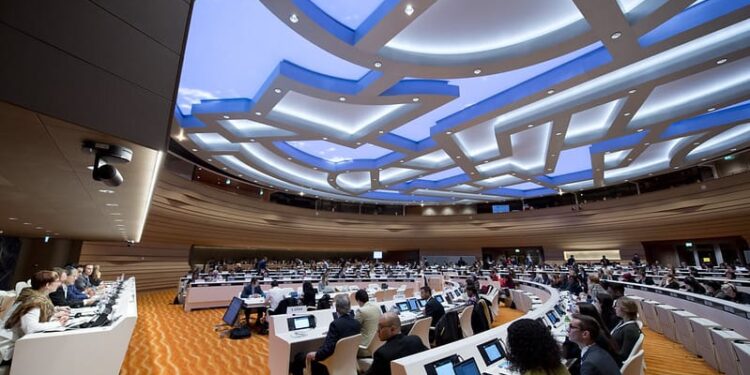Concern over the situation in Sudan has continued to mount, prompting 48 nations to ask the United Nations Human Rights Council to convene a special session to discuss the country in the wake of the military’s weekend crackdown on mass protests against last week’s coup.
Reports said the signatories include the United Kingdom, the United States, Norway, Germany and the government of Sudan, which was overthrown by the military.
“We request that the Human Rights Council (HRC) hold a special session this week to address the human rights implications of the ongoing situation in the Republic of the Sudan… A special session is needed because of the importance and urgency of the situation,” said the letter, according to the AFP news agency.
The letter was sent to the president of the council, Nazhat Shameem Khan, on Monday, November 1, 2021, by Simon Manley, the UK’s permanent representative to the World Trade Organisation and the United Nations.
A statement from the UK mission in Geneva on the human rights situation in Sudan posted on Manley’s Twitter page said: “The UK, with the USA, Norway, Germany and the legitimate Government of Sudan, has called a Special Session of the Human Rights Council to respond to the October 25 military takeover. The UK stands with the people of Sudan and the Sudanese Transitional Government, led by Prime Minister Hamdok. We call on all states to support our action.”
“The actions of the Sudanese military are a betrayal of the revolution, the transition & the hopes of the Sudanese people,” the diplomat added.
Amnesty International had also urged the Human Rights Council to hold a special session on the Sudan situation.
It asked the council to “…act without delay by convening a special session and adopting a resolution requesting the UN High Commissioner for Human Rights to set up a fact-finding mission to monitor, verify and report on the situation in Sudan to prevent further human rights violations, identify perpetrators and pave the way for accountability.”
The human rights body recalled that it had brought up the matter of Sudan before HRC’s last session, which took place between September 13 and October 8, 2021. “Amnesty International along with other civil society organisations issued a letter underscoring the importance of the council extending its support to people in Sudan and maintaining scrutiny of actions by authorities.”
The Human Rights Council holds three regular sessions a year – in March, June, and September – for a total of at least 10 weeks. It can decide to hold a special session “to address human rights violations and emergencies” if at least one third – or 16 – of its 47 member states request. Some 18 of the 48 nations that have asked for the special session are member states of HRC.
On Saturday, October 30, 2021, thousands of people marched across cities in Sudan, demanding the return of civilian rule five days after the military took over. Reports indicated that three people were shot dead by authorities, but the military denied that it had used live bullets or shot at the protesters.
The demonstrators waved Sudanese flags and chanted that they did not want military rule.
Activists broadcast messages urging people to continue opposing the military takeover.
According to Sudan TV, security forces had closed most main roads and bridges in Khartoum and had a pronounced presence on the streets. The army and the paramilitary support forces were accused of responding with violence.
The Sudan’s Central Doctors Committee said three people had been shot dead in the nationwide demonstrations. At least 11 people have been killed and 100 injured during last week’s demonstrations.
The UN Special Rapporteur on Freedom of Association, Clement Voule, condemned the killing and injuring of protesters.
Earlier, the United States and the United Nations had urged Sudan’s government not to interfere with the demonstrations.
“The US continues to stand with Sudan’s people in their non-violent struggle for democracy. Sudan’s security forces must respect human rights; any violence against peaceful demonstrators is unacceptable,” US Secretary of State Antony Blinken stated.
“Our message to Sudan’s military authorities is overwhelming and clear: The Sudanese people must be allowed to protest peacefully, and the civilian-led transitional government must be restored,” said the UN Security Council.
The African Centre for Justice and Peace Studies, which monitors and promotes respect for human rights and legal reform in Sudan, urged the Sudanese government to respect the right to life and prohibition of torture and inhumane treatment.
In a statement issued on October 28, 2021, the organisation expressed concern about continued arrests and incommunicado detention of individuals, including human rights defenders/activists, political opposition members, cabinet ministers, and government officials after the October 25 coup, when the military seized power from the transitional government led by Prime Minister Abdullah Hamdok.
The chairman of the Sudan Sovereign Council, General Abdel Fattah al-Burhan, dissolved the council, which was established after former president Omar Al-Bashir was overthrown in April 2019. Burhan declared a state of emergency and promised to hold elections in July 2023 and hand power to elected civilians.
Mobile and internet connectivity has been disrupted, hindering access to information. This is reminiscent of disruptions in June 2019, when the Transitional Military Council imposed a near-total internet shutdown as joint forces violently cracked down on a peaceful sit-in in Khartoum.







